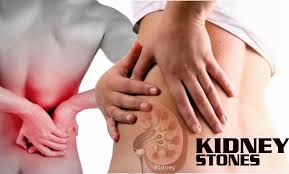Kidney Stones are otherwise called nephrolithiasis, renal lithiasis is the small, sturdy mineral deposits which are formed inside the kidneys. The stones are made of acid salts and minerals. All kidney stones are not made of the same crystals and it varies. The various types of stones are cystine stones, calcium stones, struvite stones and uric acid stones.
If there is a change in the normal balance of water, minerals, salts and other substances kidney stones may be formed. When intaking sufficient amount of water that lessens the salts, minerals and other substances start to stick in the urine and form stones. This is the major cause of the kidney stone formation.
- Severe pain during urination
- Urine normal color changes to red, pink or brown
- Cloudy or foul-smelling urine
- Nausea and vomiting
- Urgency to urinate
- Oliguria
- Fever with chills
- Severe pain in the back, flank side
- Pain radiates to the groin and lower abdomen
How are kidney stones diagnosed?
Blood tests for calcium, phosphorus, uric acid, creatinine, blood urea, and nitrogen are done in order to functioning of kidney. Apart from the blood test, Ultrasound for kidney, Abdominal X-ray, and CT scan are recommended to diagnose the kidney stones.
Increased fluid intake helps to flush out the stones through urine. Large stones which are not able to pass out through urine can be treated with Ureteroscopy, Percutaneous nephrolithotomy (PCNL) and extracorporeal shockwave lithotripsy (SWL).
SIIUT is a premier Urology Centre in Chennai. We provide treatments for all urological ailments with care and precise diagnosis.
Visit us: www.siiut.com
Mail us: urologyhospital123@gmail.com


